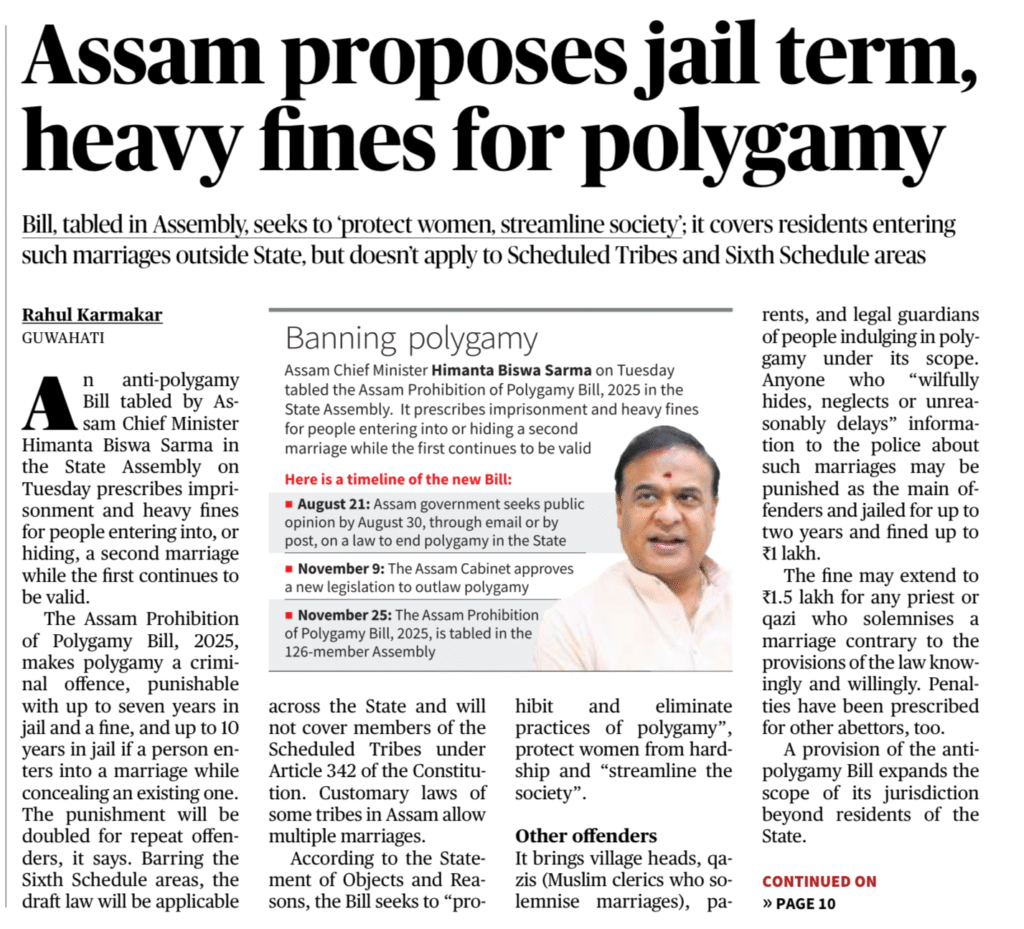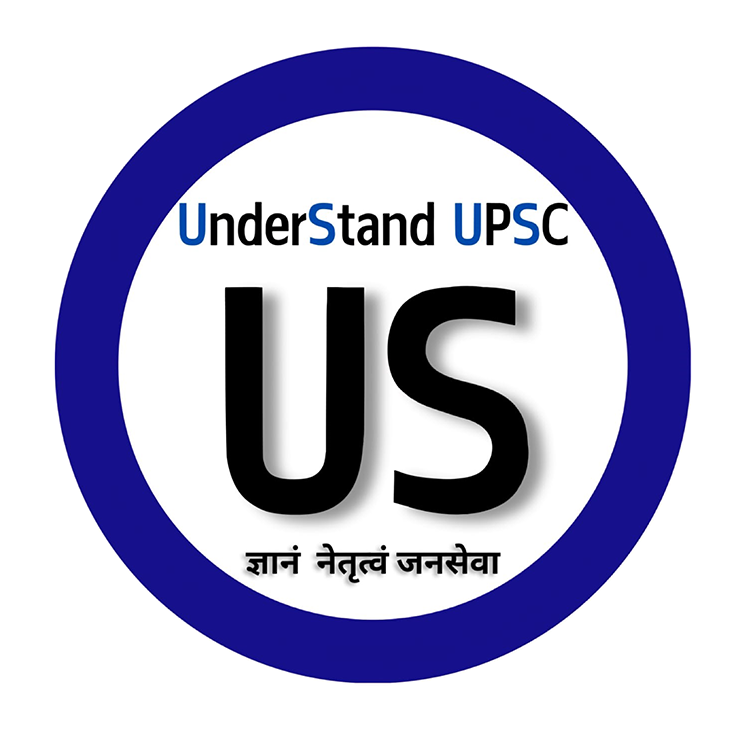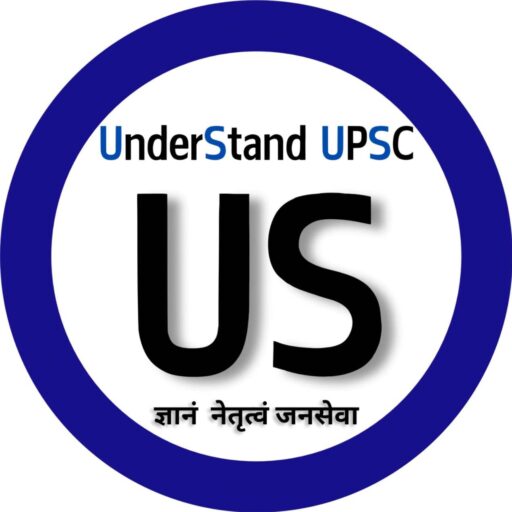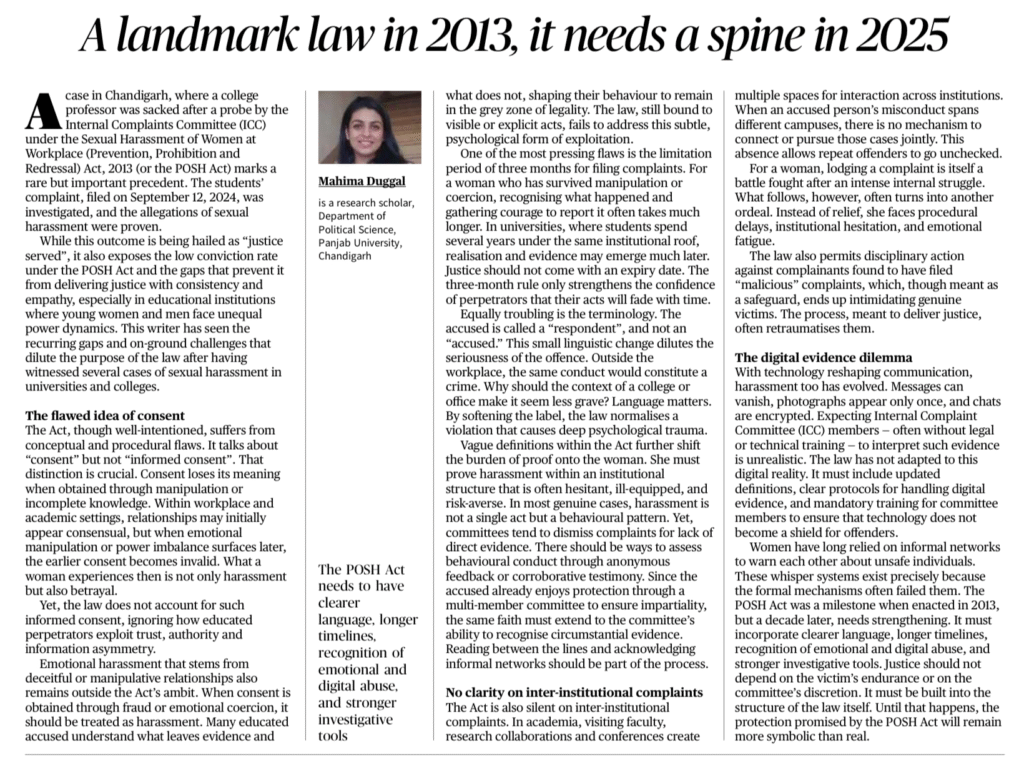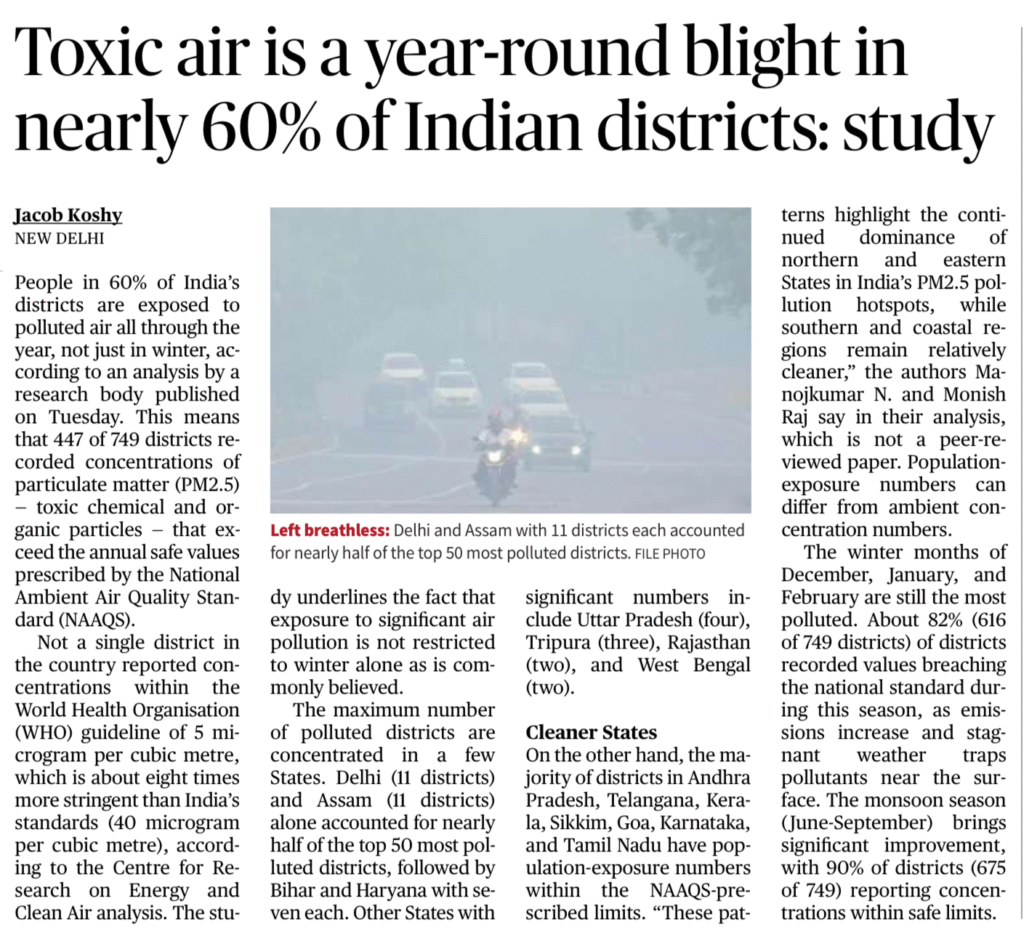Assam Polygamy Ban: Key Highlights for UPSC Current Affairs 2025
Assam Prohibition of Polygamy Bill, 2025 seeks to criminalise polygamy to protect women and curb fraudulent marriages.
Core Provisions
• Criminal offence: Second marriage during subsistence of first.
• Penalty:
• Up to 7 years jail + ₹1 lakh fine (general offence).
• Up to 10 years for hiding an existing marriage.
• Up to ₹1.5 lakh fine for priests/qazis who knowingly solemnise such marriages.
• Abetment liability: Parents/guardians delaying or hiding information punishable.
• Jurisdiction extended to Assam residents even if marriage occurs outside the State.
Exemptions
• Scheduled Tribes under Article 342.
• Sixth Schedule areas (due to customary marital practices).
Rationale
• To protect women, reduce marital exploitation, and standardise personal law practices for social order.
